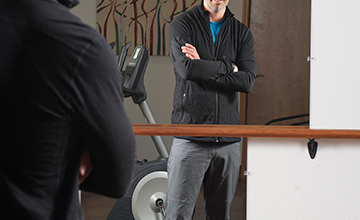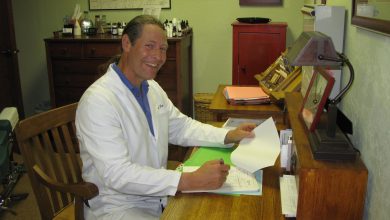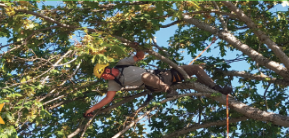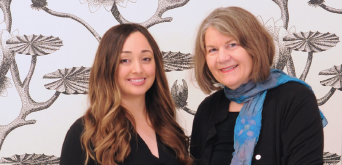Dr. Eric Dukes – Progressive Optometry – Vision and Learning
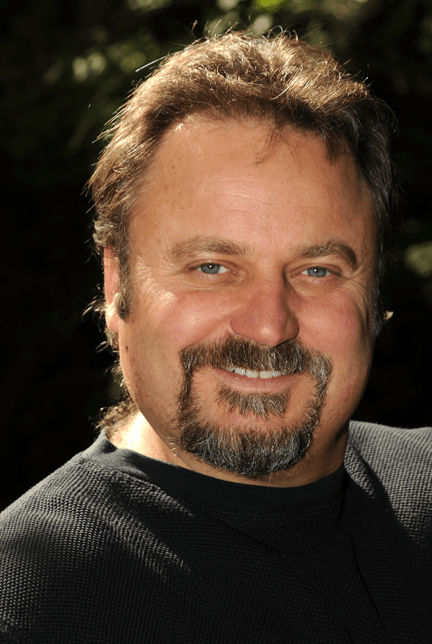 It’s always fascinating when you have a conversation that opens your eyes, to something new. It’s even more interesting, when what you learn makes sense. Allow me to introduce to you Dr. Eric Dukes of Progressive Optometry. Dr. Dukes loves to talk vision, eye care, and his favorite topic neuro optometric rehabilitation. In plain English this is the study of visual development and how vision directly relates to one’s ability to learn.
It’s always fascinating when you have a conversation that opens your eyes, to something new. It’s even more interesting, when what you learn makes sense. Allow me to introduce to you Dr. Eric Dukes of Progressive Optometry. Dr. Dukes loves to talk vision, eye care, and his favorite topic neuro optometric rehabilitation. In plain English this is the study of visual development and how vision directly relates to one’s ability to learn.
Neuro optometric rehabilitation is based on the concept of neuroplasticity, just as cognitive neurologists use it to improve and maintain brain function, developmental optometrists use it to improve visual function. They literally retrain the Brain’s visual software through a series of in- office and at home exercises that allow the individual to experience and integrate what is means to use their eyes in a highly coordinated and effective manner, thus allowing maximum performance
Dr Dukes is so passionate about his work that he could probably talk to you all day about vision and never get bored; you might, but I can guarantee you one thing. He has some very interesting information. For example Dr. Dukes makes the point that when you are born, we are taught to walk, and we are taught to talk. If you have any problem with either walking or talking it becomes immediately apparent and corrective measures are applied, but what about being taught to see correctly? A child has no way of telling his parents he has a vision problem because he has always seen this way and knows no difference. Conversely, A parent has no way of knowing if his child is seeing properly. If your visual system is not running optimally then you are not learning optimally. This can lead to a huge array of learning and behavioral problems. These can range from poor reading skills like tracking issues, reversals, omitting or skipping words, losing their places to non- visual symptoms like clumsiness, self esteem issues and ADD and ADHD like behavior. How do we Learn? How do we read? How do we pay attention? The answer is with our eyes. Our brain is a visual organism. If it is not functioning properly it will impede our ability to learn. Without proper vision we cannot achieve our maximum potential.
Dr. Dukes is currently one of about 350 doctors worldwide who is a board certified Fellow in the treatment of visually related learning disorders. Ask him more about his background and you’ll quickly learn that Optometry is a family affair. Not only does he co-own his practice with his wife Melissa, but his step father and mentor was one of the world’s leading Developmental Optometrists. Eric has his two step sisters that are Optometrists, his mother a vision therapist and did I forget to mention that his brother also married a Danish Optometrist.
Progressive Optometry was founded in 1997 and is located in the Tolman Creek shopping center. The business is family owned and operated by both Melissa & Eric Dukes. They offer a wide variety of optical goods. The boutique like dispensary provides patients with a variety of high quality eyewear at affordable prices. While Dr. Dukes concentrates on quality Optometric care his wife, Melisa Dukes keeps the business and optical side running smoothly. Together they are joined by their professional team of technicians who work hard to exceed your expectations by giving you the best individualized hands on attention you deserve.
Dr. Dukes, Thanks for speaking with us today. I’m amazed to hear about your family history. What were some of the experiences you had as a young person that turned you on to this profession?
My First experience with developmental vision therapy happened by chance. My step Father, who was a leader in this field, pointed out to me that a patient he had just seen was labeled not teachable and retarded. ( yes, not PC but that was the term used back then) . Being a teenager I didn’t pay much attention, however, I met my step dad for lunch at his office about a year or so later. Low and behold there was the same child. Her parents were crying and so was my step dad. Turns out she had just made her school’s dean list and ALL her learning problems were due to visual issues. I thought to myself “ Wow, to make such a profound life changing effect on someone’s life was really cool”. I was hooked. Then in 1984 I had the chance to work with the 1984 Olympic Volleyball team doing sports vision enhancement. As a player myself, I was in heaven. The strangest part was that all the training was done in up gaze. I was floored to learn that some people see great straight ahead but have problems when they look up or down. The team went on to win gold that year. My step father instilled a passion for Developmental Optometry that I still have to this day.
So Melissa, when the Dukes family gathers for the holidays what are you guys talking about at the dinner table?
Now days hunting!! Haha I had to change careers so I could participate in the family discussion.
Dr. Dukes, what qualities did you want to be a part of your business Progressive Optometry when you opened your doors in Ashland so many years ago?
I wanted to best of both worlds. I strove to combine a state of the art Optometric practice with a fashion forward boutique. Luckily, I married well. My wife, Melissa has the fashion sense in the family and designed a killer boutique with quality frames and the best selection in the valley. For me, it was to create an office that was conducive to practicing Optometry at the highest level as well as design a space that allowed us to continue to grow. Together we envisioned an office that provided great customer service while both providing high quality optical goods and high quality health care. I feel we have succeeded in both.
I’ll give a personal testimonial, which is that I was looking for some frames at your shop and having a difficult time deciding which ones would be best. I didn’t even need to ask for help and Janite who works up front was over helping me. I told her what I wanted to achieve in my look and she very quickly gave me tactful and candid advise. Quite frankly it really helped me make my decision and we even laughed quite a bit in the process.
Thanks. We understand that people expect quality service and as a family run business we pride ourselves in our ability to help people pick frames that flatter every face. Our patients are a walking advertisement for great glasses. We don’t shy away from telling someone that the glasses they choose are too big, ill-fitting or just bad looking. I love when a patient tells me” I get compliments on my glasses all the time.” It reflects directly on us and we strive to have everyone in a frame that is correct for their prescription and looks great.
Melissa can you give us a quick overview of the services you provide?
Professional frame and lens selection, contact lens training , visual training, minor adjustments and repairs, as well as disease detection and pre-and post lasik evaluations.
Dr. Dukes much of your work involves working with children can you tell us more about this and what you are doing?
Studies have shown the one out of every four children have a visual problem. These problems can act like road blocks to learning.. Good vision equals good learning. The eyes have over a dozen muscles that must work in perfect unison to provide the best data for the brain to use. We use neuroplasticity techniques to retrain the brain visual software to use their eyes in a highly effective and coordinated manner. This allows the patient to achieve maximum results with minimum effort. Once these road blocks are removed the study skills improve dramatically. The child gains confidence, improved self-esteem and learns that they can succeed and actually come to enjoy reading.
What are some of the signs and symptoms that parents, grandparents, teachers should be looking for when it comes to visually related issues with children?
Fighting with parents to start or complete homework. reversing and or omitting words, avoiding near work, poor stamina, tracking issues, ADD and ADHD like symptoms with near tasks and not achieving up to their potential.
Recently a friend of our mentioned that her son was having a difficult time reading also falling behind in school what are your thoughts?
Right off the bat I’d have the child tested for a visual problem. All Optometrist are skilled at detecting visual problems such as nearsightedness, A board certified developmental Optometrist has taken the extra schooling to specialize specifically in the detection and treatment of visual learning disorders. How do we read? How do we pay attention ? with our eyes! That is the first and logical step to take.
What starts to change for children who under go vision therapy?
Confidence in the ability to succeed with school work. Homework is completed faster. Reading and math skills improve rapidly and become less arduous for the child. The teacher will report improved skills and improved behavior in the classroom.
Can adults suffer from some of the same issues?
Yes they can. In fact, if you ask the Parents of a child with learning difficulties you will find that one of parents or grandparents had similar issues. It is not an inherited trait but does run in families And yes even the elderly can be trained
What about sensory integration issues or spacial awareness?
In order to move thru our world and retrieve objects, we must first answer the basic questions ‘Where is it located and how do I get to it?”. Before we can tell where an object is located, we must first know exactly where we are located . Spatial awareness simply means that we know where we are in space in relationship to other objects This information is provided by our ears, our eyes and by muscle feedback. This allows our brain to create a virtual map of the physical world . If our ‘Map” doesn’t match the physical world then that person will do things like reach for objects and miss, Not be able to hit a baseball and be very clumsy and unsure of themself. Sensory integration is the melding together of all our sensory information to make sense of our world .Vision is the master of all these senses.
Amaze us with an interesting fact you have come across lately.
My favorite Vision Fact is that the painter Monet created the entire impressionistic movement as a response to him losing his vision. Talk about making lemon aid out of lemons
Any last words or comments for our readers?
I have heard from hundreds of parents that my child is smart in everything but school or that they have ADD like symptoms in school but not in other aspects of their life. Vision is how we learn and how gather information about our world. A school screening only tells us how clear they see and not how they use their eyes.. If you suspect your child is not achieving up to their potential in school or sports, a complete eye exam should always be the first step in helping your child.
Learn More:
Progressive Optometry
2325 Ashland St
Ashland, OR 97520(541) 552-0677
http://www.doctordukes.net

